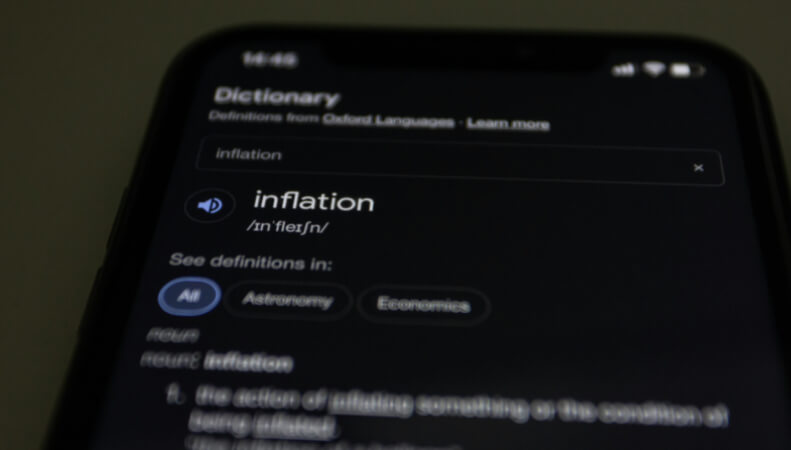By using our website, you agree to the use of cookies as described in our Cookie Policy
Blog
Four Pressing Questions
Volatility has been on the rise in financial markets this year, and December seems to be unfolding as potentially the worst month of 2018 for stock market volatility. What’s unusual this year is that just about all asset classes are down at this point, which is a reversal of what investors experienced last year in terms of both volatility and the return on their investments. In light of recent market trends, below we answer some of the questions clients are asking us about the markets.
It feels like nothing is working right now in the markets. Should I be worried?
This year, the returns of most asset classes have been negative. Indeed, 90% of the 70 asset classes tracked by Deutsche Bank appear likely to deliver negative returns for 2018. But we would also point out that this year’s disappointing market performance contrasts with 2017’s strong performance across most asset classes. In fact, the main thing that 2017 and 2018 have in common is that most asset classes moved in one direction—a pattern that’s not seen in a typical year. In 2017, only 1% of asset classes delivered negative returns, and the path was fairly smooth.
In a sense, this year’s broad weakness results from last year’s broad strength. Last year, markets seemed to overlook looming challenges—challenges that we discussed with clients. This year, markets are finally reflecting those challenges in their prices. While we don’t like the downturn, we’re not alarmed by it. It seems like a rational reaction to uncertainty and overpriced markets. Also, we see the potential for an upturn once the challenges work themselves through.
Why hasn’t my portfolio been more heavily focused on the best-performing investments?
One of the main reasons is pretty simple—no one can reliably and repeatedly predict which asset classes are going to outperform and which will trail over short or even intermediate periods. Also, a portfolio takes on lots of risk when it focuses on one type of asset. With too large a concentration, you can’t afford to be wrong, whereas balancing numerous asset classes that perform differently smooths out the peaks and valleys of portfolio performance.
Still, we understand these “valleys” can be hard. Diversification has a great track record for working over the long run, but its results sometimes frustrate investors for extended periods of time. Nonetheless, we believe there is no better approach than owning a basket of investments that have different performance characteristics and sticking with that basic approach for the long run. This strategy is especially true as volatility has risen in the current market environment, making risk management more important.
As our clients know, one of our core priorities is cushioning their portfolios from volatility, especially big market declines. With that in mind, we don’t seek absolute returns at any price. Instead, we always strive to balance risks against the potential for returns.
How are you thinking about managing risk in this environment?
Taking prudent risk is a core component of being a successful long-term investor and this is foundational to what we do. This means we take on portfolio risk when we have conviction that the return potential warrants doing so. U.S. stocks have been the place to be for many years, and our concerns over valuations have kept portfolios from fully participating in their run. We can learn from the past, but we must make decisions by having an awareness of where we are currently and keep a long-term, forward-looking perspective. Looking ahead, the U.S. market, on a relative and absolute basis, is the most expensive major stock market in the world. As a result, it presents a poor return-versus-risk tradeoff. However, there’s a big world outside the Standard & Poor’s 500, with investments that look attractive to us in terms of their valuations and fundamentals. We like non-U.S. stocks—in Europe and emerging markets—as well as alternative investments. Those seem like smarter areas in which to take risks.
I understand that taking action is not always the right thing to do in choppy markets, but I still feel something needs to be done. What are you doing to protect my portfolio and why should I stay the course?
It is very well studied, with striking results, that one of the costliest mistakes people make with their portfolios is bailing out of their holdings at the wrong time and locking in losses or missing a rebound. It’s understandable that emotions may run high, sparking an investor’s retreat. As a partner to our clients, one of the most valuable things we can do is to keep our clients invested. The market’s softening has created buying opportunities that we believe will pay off over the long run for investors who have the grit to stay invested.
Staying invested requires being comfortable with some level of uncertainty and short-term volatility. At the same time, we’ve sought to only take risks that we believe will eventually pay off. That’s part of what we did when we reduced our fixed-income portfolios’ exposure to the risks of rising rates. We took advantage of our flexibility to invest in less efficient fixed-income sectors where we could still find some relatively attractive investments without undue risk.
Having said this, if you have a nagging concern, a shorter-term cash or potential liquidity need, or any changes in your life that we should be aware of, please let us know so we can discuss and plan for your specific situation in greater detail.
Some Final Thoughts
If you’re seeing news about shaky markets and finding yourself asking similar questions to those we’ve posed above, please keep two things in mind as you consider our responses. One is the fact that throughout the most immediate turmoil, foreign stocks have been outperforming. Whether this is a blip or a turning point, time will tell, but it’s definitely on our radar. The other is that volatility isn’t just inevitable but is in fact necessary to our process. Long-term investors should almost relish these moments. If you look back in history to the scariest times to invest, you’d see those are the times that generated bargain sales that set up fundamental-minded investors for amazing future success. That’s why our research attention right now is on assessing those bargains, not on getting defensive. When executed with discipline and patience, our investment process has proven its worth over multiple market cycles.
— JMS Team
JMS Capital Group Wealth Services LLC
417 Thorn Street, Suite 300 | Sewickley, PA | 15143 | 412‐415‐1177 | jmscapitalgroup.com
An SEC‐registered investment advisor.
This material is not intended as an offer or solicitation for the purchase or sale of any financial instrument or investment strategy. Certain material in this work is proprietary to and copyrighted by Litman Gregory Analytics and is used by JMS Capital Group Wealth Services LLC with permission. This material has been prepared for informational purposes only, and is not intended to provide, and should not be relied on for, accounting, legal or tax advice. Any references to future returns are not promises - or even estimates - of actual returns a client portfolio may achieve. Any forecasts contained herein are for illustrative purposes only and are not to be relied upon as advice or interpreted as a recommendation for a specific investment. Past performance is not a guarantee of future results.
‹ Back








